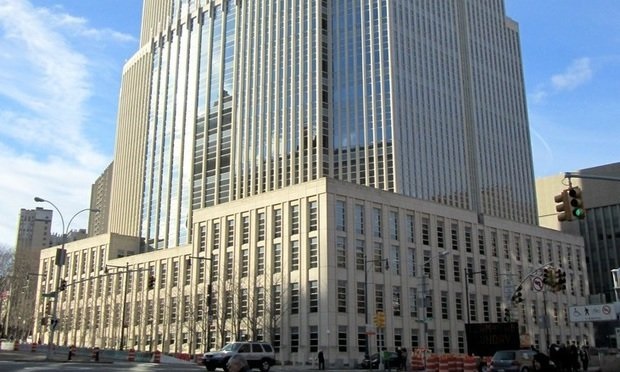Mozambique: Independence day attracts vendors to stadium, optimism about future
New York trial sees evidence of Privinvest bribes – AIM report

FILE: U.S District Court, Eastern District of New York (Brooklyn). [File photo: law.com]
The trial in New York of Jean Boustani, a senior sales executive in the Abu Dhabi based Privinvest group, on Monday saw some of the vast hoard of email messages, bank statements, and telephone transcripts which the prosecution argue are proof of a conspiracy to commit money laundering, wire fraud and securities fraud.
The case emerges from the scandal of Mozambique’s “hidden debts” – a term used to describe the scheme whereby, in 2013 and 2014, three security-linked Mozambican companies, Ematum (Mozambique Tuna Company), Proindicus and MAM (Mozambique Asset Management), with no business record whatsoever, obtained over two billion dollars in loans from the banks Credit Suisse and VTB of Russia. The loans were only possible because the Mozambican government of the day granted illegal loan guarantees, in violation of the budget law.
American prosecutors have been pursuing the case, because some of the money laundered passed through US banks, and because US investors were defrauded when they purchased chunks of the debts. The US investigators concluded that at least 200 million dollars of the loan money was spent on bribes and kickbacks.
The prosecutors also charged three former Credit Suisse bankers who have pleaded guilty, and are now witnesses for the prosecution, and Mozambique’s former finance minister, Manuel Chang, who is currently under police custody in South Africa, fighting against extradition to the US.
Boustani does not deny making payments to Mozambican officials in connection with the three loans. His lawyer, Michael Schachter, told the jurors that such payments were “the cost of doing business” in Mozambique.
The Mozambican government would strongly deny this – and, even if it were true, it would still be illegal under Mozambican law.
According to a report on the trial by the Bloomberg agency, among the documents shown by the prosecution was evidence that Privinvest inflated the cost of materials it sold the Mozambican companies – which backs up one of the key findings of the 2017 audit of Proindicus, Ematum and MAM by the company Kroll.
One spreadsheet introduced as evidence showed that ProIndicus was charged as a 355 million dollar venture even though it actually cost 170 million dollars.
Two mobile radar stations that cost Privinvest 1.6 million dollars to build were inflated to 3.3 million dollars, while two offshore patrol vessels that cost Privinvest 55 million dollars were billed at 114.5 million.
Another spreadsheet, compiled by Najib Allam, Privinvest’s chief financial officer, who has also been indicted by the US prosecutors, but is currently out of their reach, details the tens of millions of dollars paid out in the scheme, including 11.8 million dollars that allegedly went Ndambi Guebuza, the oldest son of the then President, Armando Guebuza.
Two Mozambican civil society organisations, the Centre for Public Integrity (CIP), and the Budgetary Monitoring Forum (FMO), are covering the trial closely – and their attention was drawn to evidence that some of the loan money went to Mozambique’s ruling Frelimo Party.
These payments were included in the financial evidence given by Jonathan Polonitza, an agent of the US Federal Bureau of Investigation (FBI). There were four transfers to Frelimo, totalling ten million dollars, on 31 March, 29 May, 19 June and 3 July 2014. The money came from an account in the Gulf First Bank Abu Dhabi, held by Logistics International S.A.L. (offshore), which is a subsidiary of Privinvest. The money was transferred via New York.
These bank transfers are just a few of the many hundreds of documents in the possession of the FBI. One of them, an email from Boustani to Najib Allam, dated 8 April 2014, gives a breakdown of bribe payments to be made to assorted Mozambicans – including Chang, the head of the Security and Intelligence Service (SISE), Gregorio Leao, and the former SISE head of economic intelligence, Antonio do Rosario, who became chairperson of Ematum, Proindicus and MAM.
Privinvest, of course, denies everything. A statement from Privinvest claimed that it never paid any bribes, and claimed to be proud of its work “on delivering the Mozambique projects”, blaming Mozambique for not implementing them.
The case is U.S. v. Boustani, 18-cr-681, U.S District Court, Eastern District of New York (Brooklyn).












Leave a Reply
Be the First to Comment!
You must be logged in to post a comment.
You must be logged in to post a comment.